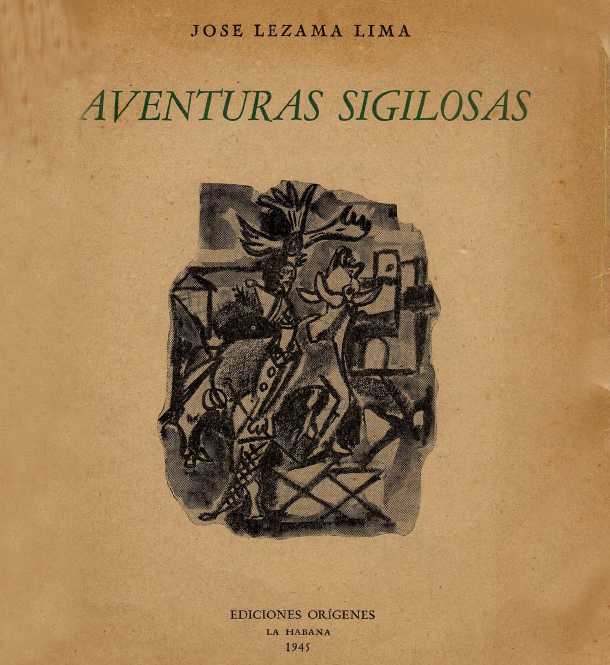4.1.2.2.3 “Stealth Adventures”, 1945, by José Lezama Lima (1910 -1976)

In “Stealthy Adventures,” Lezama Lima remains within the coordinates that had motivated his essential poetic need in previous works, in many aspects intensifying that worldview that now occurs in images and is expressed through a vocabulary that remains one of the richest in the language in its literary plasticity.
This short collection of poems is composed of 10 pieces, entitled “Call of the Desired One,” “The Wife in the Balance,” “Encounter with the False One,” “Fire in the Village,” “Blind Man’s Tapestry,” “Dialogue on a Hump,” “Culebrinas,” “The Oval Portrait,” “Boredom of the Second Day,” and “The Guardian Begins the Circular Combat.” These pieces are written in free verse, and the last one, in poetic prose.
In this collection of poems, we can already see the first signs of Lezam’s poetic system, which he would develop in parallel in subsequent installments of Paradiso; this was primarily due to an ever-increasing focus of his aesthetic approach to poetry per se, but also allowing other topics to converge in the collection, like a winding path between one image and another.
The text is preceded by a sort of introduction, entitled “The Port,” which captures the central elements that will later be poeticized, but which itself already has its lyrical roots. The mother, the wife, the son, the women, form an almost theatrical dance in which the motif of the journey, or rather, of escape, is repeated, so akin to a certain Lezama conception of the paths of life, also applied to poetry.
In the first poem, entitled “Call of the Desired,” we can see what in Lezama is more than a sexual impulse; it is above all a yearning to penetrate the unknown, to unravel the essence of reality and at the same time recreate it, which he finds possible in the universe of poetry. The initial breath of this text runs through the entire collection of poems, one of those that helped to forge a path, although never by imitation, in the Origenist sphere:
“Desirous is he who runs away from his mother.
Saying goodbye is cultivating a dew to unite it with the secularity of saliva.
The depth of desire does not go through the kidnapping of the fruit.
He is eager to stop seeing his mother.
It is the absence of the event of a day that is prolonged
and it is at night that this absence deepens like a knife.
In that absence a tower opens, in that tower a hollow fire dances.
and so it widens and the absence of the mother is a calm sea.
But the fugitive does not see the knife that asks him,
It is from the mother, from the secured shutters, that one flees.
What has descended into old blood sounds empty.
The blood is cold when it descends and when it spreads it circulates.
The mother is cold and accomplished.
If it is because of death, its weight is double and it will no longer let us go.
It is not through the doors that our abandonment appears.
It is through a clearing where the mother seems to be walking, but she no longer follows us.
It is through a clearing, there he blinds himself and leaves us well.
Woe to him who does not walk that path where his mother no longer follows him, woe.
It is not unknown, knowing oneself is still furious as in its days,
but to follow him would be to burn two on a tree,
and she wants to look at the tree like a stone,
like a stone with the inscription of ancient games.
Our desire is not to reach or incorporate a sour fruit.
The desirous is the elusive
and from the headbutts with our mothers the planet falls centerpiece
And where do we run from, if not from our mothers?
who never want to start the same card over again, the same night with the same enormous flank?”








